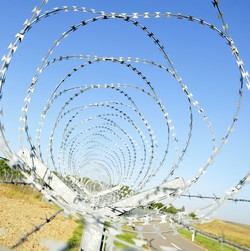The fluid framing of state borders
Significant changes in recent history such as the end of the cold war, European integration and the intricate process of globalisation have dramatically changed the significance of borders. Thus, state borders in a socio-political context are continuously changing in terms of challenging traditional forms of politics, governance and identity. This makes borders both subjective and socially significant. How these changes have prompted social, economic, cultural and geopolitical transformations in the past decades is worth examining. In light of this, the EU-funded EUBORDERSCAPES(opens in new window) (Bordering, political landscapes and social arenas: Potentials and challenges of evolving border concepts in a post-cold war world) project investigated the rationales involved in the making of borders as institutions, processes and symbols. This entailed adopting the notion that borders emerge as a result of socio-political processes happening in society. Specifically, the project looked at how borders reflect change in society and what differences they make in the lives of groups and individuals. The project's consortium highlighted the themes and concepts that are developing in studies on the topic, providing a new way to view borders. To achieve its aims, EUBORDERSCAPES initially focused on creating specific approaches to pave the way for the creation of case studies and participation in field work. It also identified issues that have been addressed in specific reports and policy-oriented material. Some of these issues are relevant to gender, migration, identity politics, cross-border cooperation and conflict amelioration. Project results have been highlighted through several working papers and a report on the topic, all of which can be downloaded from the project website. A documentary has also been produced and a book has been published, with the final results having been revealed in May 2016 during the final project conference held in Berlin, Germany.







